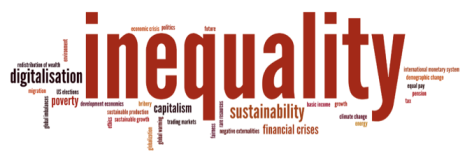A new paradigm for teaching economics Don’t let the students know! What we teach them in our intro classes bears little resemblance to how we do economics ourselves … The new paradigm not only provides a more convincing story about how an economy might reach a competitive equilibrium, it also fundamentally alters the nature of that outcome. When lenders and borrowers, and employers and employees, are modelled as principals and agents with asymmetric information, who interact under an incomplete contract, credit and labour markets do not clear in competitive equilibrium … The gap between concerns about major economic problems that bring students to our classrooms, and the topics we teach, is a second motivation for the CORE Project. During the past four
Topics:
Lars Pålsson Syll considers the following as important: Economics
This could be interesting, too:
Lars Pålsson Syll writes Schuldenbremse bye bye
Lars Pålsson Syll writes What’s wrong with economics — a primer
Lars Pålsson Syll writes Krigskeynesianismens återkomst
Lars Pålsson Syll writes Finding Eigenvalues and Eigenvectors (student stuff)
A new paradigm for teaching economics
Don’t let the students know! What we teach them in our intro classes bears little resemblance to how we do economics ourselves …
The new paradigm not only provides a more convincing story about how an economy might reach a competitive equilibrium, it also fundamentally alters the nature of that outcome. When lenders and borrowers, and employers and employees, are modelled as principals and agents with asymmetric information, who interact under an incomplete contract, credit and labour markets do not clear in competitive equilibrium …
The gap between concerns about major economic problems that bring students to our classrooms, and the topics we teach, is a second motivation for the CORE Project. During the past four years we have asked, in classrooms around the world: “what is the most pressing problem that economists should address?” The word cloud below shows what students at the Humboldt University in Berlin told us:
Word clouds from students in Sydney, London and Bogota are barely distinguishable from Berlin … Even more remarkable, in 2016 we asked the same question to new recruits – mostly economics graduates – at the Bank of England, and professional economists and other staff at the New Zealand Treasury and Reserve Bank. Both responded with a similar concern about inequality. Word clouds from France gave greater prominence to unemployment. All of them highlight climate change and environmental problems, automation, and financial instability.

